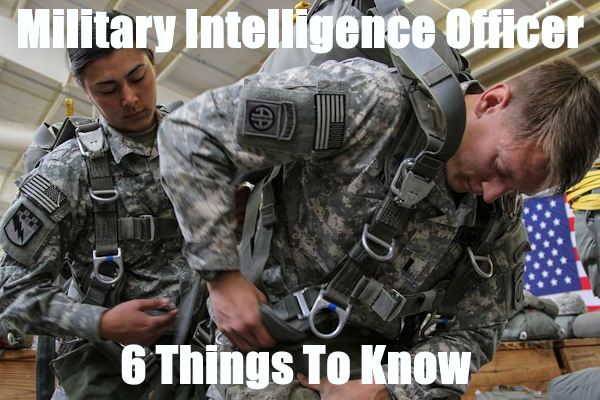There is no question that a Military Intelligence Officer is at the forefront of national security.
These officers serve an extremely important function within the modern structure of the U.S. Armed Forces.
Military Intelligence Officers analyze top-secret information and interpret reports from national intelligence.
Learn more about the role of a Military Intelligence Officer including training and job responsibilities.
Related Article – Air Force Intelligence Officer: What They Do, Pay, Training, And More
Table of Contents
Military Intelligence Officer: 6 Things to Know
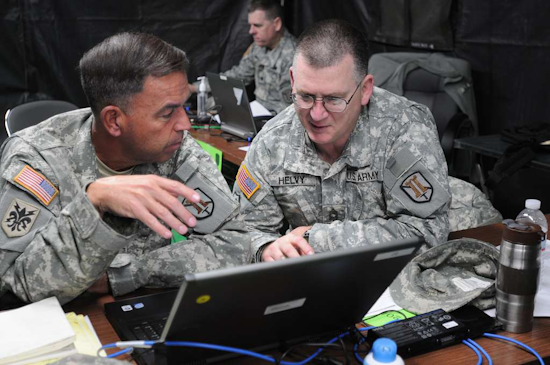
The U.S. Armed Forces depend on accurate and reliable information.
Often, this can be the difference between protecting national security and assets or seriously jeopardizing it.
Thus, a Military Intelligence Officer provides an essential function in modern warfare.
Military Intelligence Officers analyze top-secret information and satellite imagery.
Secondly, the Armed Forces utilize intelligence to determine the size, strength, and capacity of enemy forces.
The methods they use to extract and interpret information go a long way toward protecting national interests.
For this reason, the U.S. Armed Forces recruit Military Intelligence Officers in all the major branches of the military.
In general, the requirements and job duties are comparable, but there are a few important distinctions (more information, below).
Are you interested in becoming a Military Intelligence Officer?
There are several important things to know before you decide to join one of the service branches.
For starters, the role of an intelligence officer varies depending on the military branch and job function.
Nevertheless, there are several important things to consider about becoming a Military Intelligence Officer, including:
- Purpose
- Requirements & Qualifications
- Responsibilities
- Military Intelligence Officer Training
- Job Opportunities
- Civilian / Advancement Opportunities
Learn more about each aspect of becoming a Military Intelligence Officer:
#1. Purpose
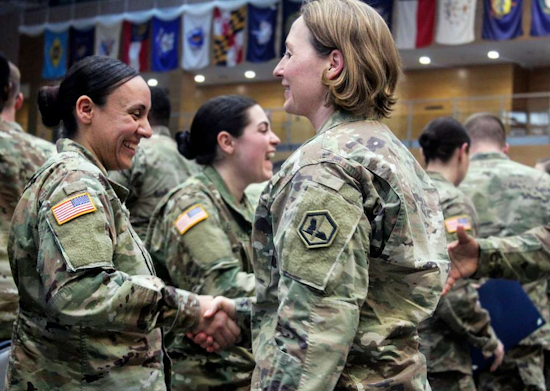
The military seeks to find the location of opposing forces and coordinate future points of vulnerability.
Today, intelligence data is gathered from aerial imagery, satellite, radar /electronic monitoring, and human observation.
Consequently, there are many different ways to approach the collection of intelligence.
For this reason, a Military Intelligence Officer fulfills an important function within the armed forces.
Military Intelligence Officers develop and execute the policies and procedures that direct national defense.
Accordingly, these officers are military experts who excel at conducting surveillance or counterintelligence operations.
In general, intelligence officers specialize in one form of intelligence (imagery, signals, etc.) and are assigned to various branches of the military.
Currently, the U.S. Army, Navy, Marine Corps, Air Force, Space Force, and Coast Guard all have variations of a Military Intelligence Officer (more details, below).
Related Article – Navy Intelligence Specialist (IS): Career Details
#2. Requirements & Qualifications

The role of a Military Intelligence Officer is demanding.
For starters, officers in any branch of the military earn that designation thanks to a college education as well as completing several training programs.
Therefore, they are not only very well trained but also display an ability to analyze and interpret data.
Moreover, having the ability to organize and manage activities is crucial for an aspiring military officer.
Furthermore, it’s worthwhile to have the ability to solve complex problems and work under pressure.
Generally, Military Intelligence Officers handle some complex and sophisticated technology.
As a result, it doesn’t hurt to have computer skills and know the latest in tech and other advancements.
Nevertheless, the specific requirements and qualifications of a Military Intelligence Officer depend on the service branch.
Regardless, most service branches of the U.S. Armed Forces have fairly consistent standards for officers (more details, below).
Officer candidates usually have a bachelor’s degree or higher and can provide expertise and management skills.
So, anyone who seeks to become a Military Intelligence Officer must pass strict eligibility requirements.
#3. Job Responsibilities
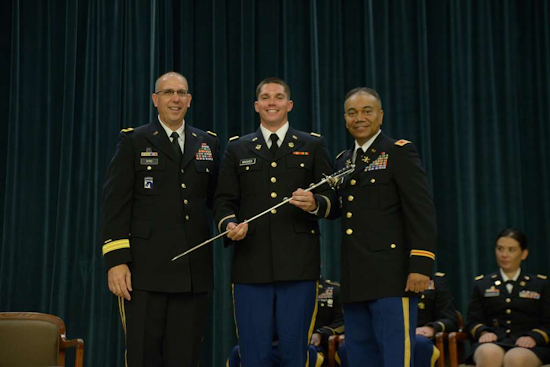
The Military Intelligence Officer has many different responsibilities in the Armed Forces.
First, they must plan, manage, and coordinate the collection of intelligence information.
There are situations where officers are involved in counterintelligence operations.
Secondly, a Military Intelligence Officer collects and processes information that may contain threats to national security.
For example, this may include attempts to sabotage the nation or active threats of terrorism.
Third, a Military Intelligence Officer must collect information regarding the formation, mission, and tactics of opposing forces.
Fourth, the territory a Military Intelligence Officer covers is vastly expanding.
In fact, these officers conduct intelligence gathering via maritime, air, and ground activity.
Moreover, they are able to access information from space, including critical data gathered from satellites.
Military Intelligence Officers have several other job responsibilities that are more specifically defined by their precise role in the military.
Today, every branch of the U.S. Armed Forces has its own version of a Military Intelligence Officer (see, below).
Related Article – Navy Intelligence Officer
#4. Military Intelligence Officer Training
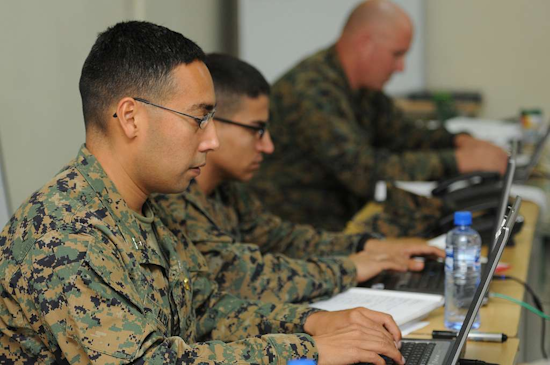
In general, military officers are commissioned after they finish a 4-year college degree.
Despite this, there are numerous avenues for individuals who have not yet received a bachelor’s degree but would like to become a military officer.
In fact, various officer programs are funded by the military that provide financial aid, as well as housing and food allowances.
Accordingly, there are a variety of pathways toward a degree and becoming a Military Intelligence Officer.
Otherwise, the training for an intelligence officer depends on the service branch and job specialty.
Nonetheless, job training for a Military Intelligence Officer usually consists of a combination of classroom instruction and field exercises.
The purpose of any military training program is also to provide on-the-job learning experiences.
As such, Military Intelligence Officers are put through a comprehensive and extensive training program.
The amount and length of training will vary depending on the service branch and job rating.
Be that as it may, most training programs focus on the following:
- Air, Ground, & Sea Intelligence Operations
- Photograph Interpretation
- Surveillance / Reconnaissance Equipment
- Weapons Systems
It’s not uncommon to find an intelligence officer assigned to military installations or aboard ships.
Military Intelligence Officers are also attached to field maneuvers and surveillance exercises.
Related Article – Air Force Operations Intelligence (1N0X1): Career Profile
#5. Job Opportunities
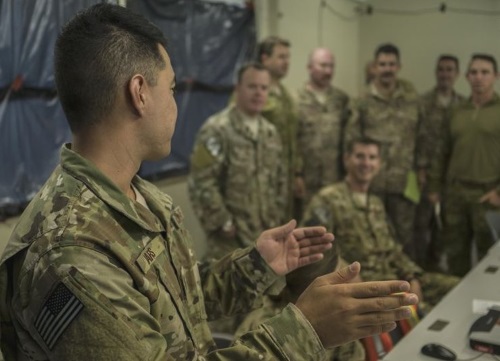
There are multiple career opportunities for Military Intelligence Officers.
In fact, every branch of the U.S. Armed Forces has its own version of the military occupation:
U.S. Army
The United States Army has a long history of gathering military intelligence and surveillance.
Therefore, it’s not shocking that the military branch has several different roles for intelligence officers:
- Cyber Capabilities Development Officer
- Cyber Electromagnetic Warfare Officer
- Cyber Warfare Officer
- Military Intelligence Officer
- Psychological Operations Officer
- Signal Officer
Discover more about the job opportunities available with the United States Army.
U.S. Navy
The United States Navy has more opportunities to become an intelligence officer than any other service branch.
In fact, there are currently several Naval officer career fields that incorporate some form of intelligence gathering.
The following Navy positions are worth considering if you are interested in the military occupation:
- Cryptologic Warfare Officer
- Cyber Warfare Engineer
- Information Professional Officer
- Intelligence Officer
- Surface Warfare Officer
The Navy also features intelligence collection specialties like operational/strategic, expeditionary intelligence, and imagery exploitation.
Marine Corps (USMC)
The United States Marine Corps also offers many different intelligence roles.
For example, Marines can apply for a commission and serve the nation as the following:
- Marine Corps Intelligence Officer
- Air Intelligence Officer
- Collection Management Officer
- Ground Intelligence Officer
- Logistics Intelligence Planner
- Marine Air Ground Task Force (MAGTF) Intelligence
Discover more about Marine Intelligence Officers.
Air Force / Space Force
Currently, the United States Air Force (USAF) has three positions in the intelligence field for commissioned officers.
The USAF prides itself on its early domination of cyberspace, so includes Cyber activities in its intelligence operations.
USAF intelligence jobs for commissioned officers include:
- Cyber Warfare Operations Officer
- Cyberspace Operations Officers
- Intelligence Officer
The Space Force has two intelligence positions open to commissioned officers:
- Cyberspace Effects Operations Officers
- Intelligence Officer
Coast Guard (USCG)
The United States Coast Guard has a couple of different roles in military intelligence:
- Cyber Officer
- Intelligence Officer
Learn more about becoming a Coast Guard Intelligence Officer.
Related Article – Marine Corps Officer Jobs (MOS)
#6. Civilian / Advancement Opportunities
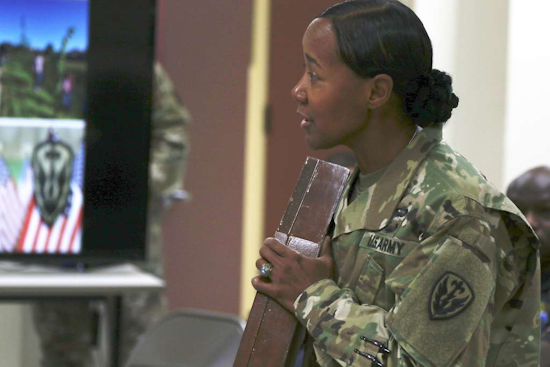
There are many reasons why you should consider a military job as an intelligence officer.
For starters, the modern world continues to evolve and rely more on highly advanced technology.
Therefore, those who have computer skills and problem-solving skills can really thrive in the military role.
Furthermore, there are many opportunities in the civilian/private sector after your time in service is complete.
The specialized education, training, and job experience that Military Intelligence Officers receive are invaluable.
So, many future opportunities also exist with private or government employment.
More importantly, the Army, Air Force, Marines, and Navy also feature part-time opportunities for intelligence gathering.
These opportunities are available through the Reserves and National Guard components.
Conclusion
There are many reasons worth considering serving the nation as a Military Intelligence Officer.
Military Intelligence Officers are responsible for surveillance and information gathering.
The hard work leads to critical intelligence about enemy forces and other information necessary to keep the nation safe.
Currently, every service branch in the Armed Forces has multiple ways to serve the country as an intelligence officer.
However, eligible candidates must first meet job qualifications and requirements.
- Ikon Pass Military Discount: Learn How To Save Big - January 31, 2025
- RTIC Military Discount: Find Out How To Save Big on Gear - January 30, 2025
- Traeger Military Discount: Learn How To Save Big on Smokers - January 28, 2025

